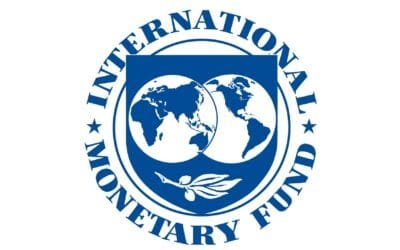If I steal a toaster, is that good for the economy? Hmmm.
Well, stealing is the act of taking something from someone without their consent. In other words, the thief receives a value and offers nothing in return. Obviously, if everyone was allowed to steal toasters it would be a disaster. A lot of people would work to make the toasters while others simply took them without producing or offering anything of value in return. It would not take long for the toaster maker to stop producing them.
What if the thief was a little more clever? Instead of shoplifting the toaster through concealment of some kind, he prints a counterfeit bill in his basement printing press. He takes the bill to the store and “pays” for the toaster. Once again, he has done no real work and offers nothing to the makers of the toaster. He has simply tricked them into thinking that they have received something of value in exchange for their work making the toaster. The thief has the toaster, and the toaster maker has a worthless piece of paper.
What if the thief, rather than stealing the toaster or counterfeiting money, just stole real money from his neighbor? Then he could waltz into the store with a fresh bill and just buy that toaster.
How are these three situations different in principle? In the first case, the thief overtly stole a toaster. In the second case, the thief also stole the toaster, just in a slightly more clever way. In the third case, the thief stole the money for the toaster. If the first case is immoral and impractical, why wouldn’t the second and third cases be equally as immoral and impractical? In fact, all three methods are just different forms of theft and all have similar practical results. But don’t tell that to an economics professor or politician.
The second case is the essential basis upon which the entire Federal Reserve system operates and provides the ideological basis for the Nobel Prize winning academics that serve on its board. With the nomination of Janet Yellen as the new Fed chairman, this philosophy promises to be taken to an even more absurd height. The third case is the essential premise behind government stimulus spending equally in favor amongst prize winning academics. Are they all crazy or stupid? In short, yes.
How could the Yellen’s and Bernanke’s of the world possibly think that counterfeiting money is a good idea? Well, they would say, once the toaster maker has the counterfeit bills, he can take those bills and trick his suppliers and employees, even if he doesn’t know he has counterfeit bills. Then the suppliers and employees can take the counterfeit bills and trick others too. In this way, they boost “aggregate demand” which in the short run tricks people into thinking that actual production is being exchanged value for value – even though it is not. Somehow, they believe, this will be “good” for the economy.
What about government “stimulus?” This is the idea that if the government spends other people’s money, it will be good for the economy. In other words, if the government steals money from one group, ultimately through taxes, and simply gives it to another group, this will help the economy.
So, can we really cheat reality in this way? Can we just print counterfeit money and make goods appear? Can we take money from one group and give it to another in such a way that more is created? If we think in these simple terms, isn’t it obvious that none of these ideas will “work” in the sense of creating actual wealth and prosperity? In fact, only creating wealth creates wealth, and the precondition to creating wealth is the freedom to produce and trade which, in turn, depends on the right to think, act, and own property free from coercion — particularly, from theft.










